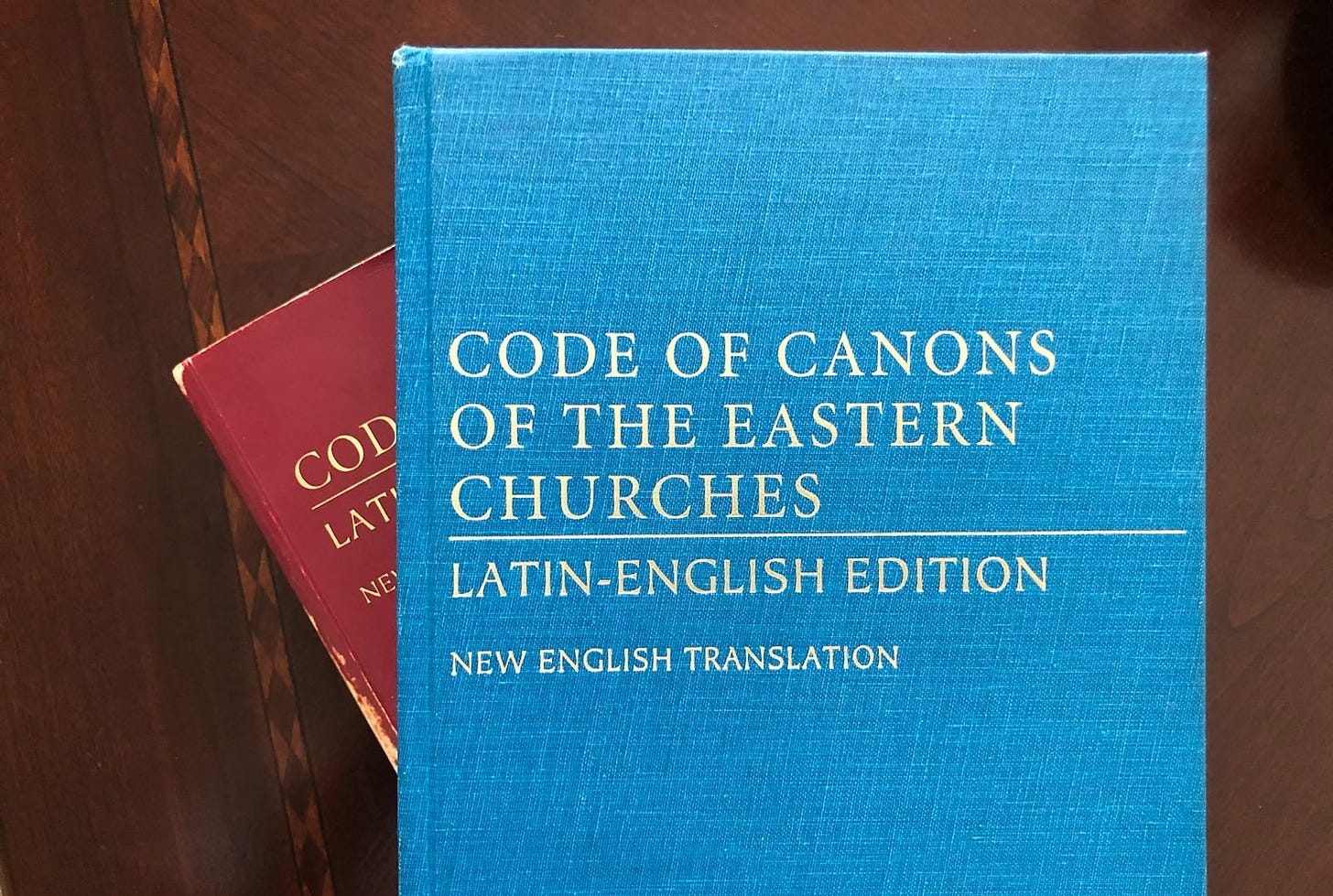
Pope Francis issued new reforms to the penal law of the Code of Canons for the Eastern Churches on Wednesday, bringing the code into harmony with the revised Latin Code of Canon Law, which the pope reissued two years ago.
In a motu proprio signed March 20 but announced by the Vatican on April 5, Francis formally amended twenty-three canons of the eastern code, which serves as the common canonical law for the twenty-three sui iuris eastern Churches in communion with the Bishop of Rome.
In the motu proprio, titled Vocare peccatores, the pope reiterated the need for an up-to-date penal code for the entire Church and for the Church’s disciplinary laws and processes to be used as part of the ordinary administration of justice and pastoral care by bishops.
“In the Church the purposes of punishment are the restoration of justice, the correction of the matter, and the reparation of the offense and damage,” wrote the pope.
“The shepherds, therefore, reveal their concern when they see to it that the portion of God's people entrusted to them is preserved within the ways of the Lord; when… they endeavor to correct the behavior of the faithful Christians who err; and finally they use canonical punishments where offenses have been committed.”
“When the pastor acts in this way to avoid crimes and to properly punish the guilty,” said Francis, “he shows that he is aware of his duty and to love the faithful committed to him.”
Among the changes to the eastern code, Francis included a new, explicit obligation on eastern hierarchs to “promote the procedure for the imposition of punishments, when neither reprimand, nor entreaty, nor rebuke can be sufficient to restore justice, to bring the guilty to penance and amend himself, to repair the scandal and damage.”
The changes, which come into force on June 29, also include the mandatory imposition of penalties in cases of repeat offenses, as well as renewed and explicit emphasis on the presumption of innocence and the right of legal defense for accused clerics.
The Code of Canon for the Eastern Churches was promulgated by Pope St. John Paul II in 1990, seven years after he issued the revised Code of Canon Law for the Latin Church.
Writing in Vocare peccatores, Francis said that “the need to adapt the tools of government to pastoral demands has led in recent years to the work of revising the penal institutions of the Church,” and referenced his reform of the Latin penal code in 2021.
In the 2021 the apostolic constitution Pascite gregem Dei, which replaced Book VI of the Latin code, Francis wrote that “In the past, the lack of perception of the intimate relationship existing in the Church between the exercise of charity and the recourse - where circumstances and justice so require - to sanctioning discipline has caused much damage.”
“This way of thinking - experience teaches us - runs the risk of leading to behaviors contrary to the discipline of morals, whose remedy only exhortations or suggestions are not enough,” said the pope.
Many canonists believe the sexual abuse scandals of recent decades to have been exacerbated by a culture of antinomianism — the notion, especially present in some quarters of the Church after Vatican Council II, that the idea of law in the Church, and the idea of the Church as a coherent society in need of law, is antiquated, draconian, or at odds with Christian charity.
Cases of clerical sexual abuse in the United States dating back to the 1960s, ‘70s, and ‘80s were compounded by bishops and chanceries who treated criminal sexual activity principally as a pastoral problem, which led in many cases to the practice of moving abusive priests from parish to parish. And many canonists argue that a general tendency to avoid legal proceedings in the Church has led to a laxity in clerical discipline, which enables clerical abusers to act with impunity.
In the changes to the eastern code, Pope Francis added new norms requiring the canonical punishment of clerics who commit “an offense against chastity,” as well as new provisions for the punishment of the possession and dissemination of child pornography already present in the revised Latin code.
